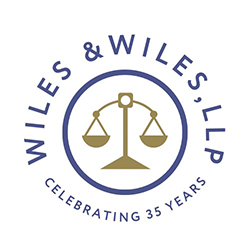Electronic Transactions in Georgia: Do You Still Need The Paper, or Can You Do It All In The Cloud? By: N. Jackson Cotney, Jr.
ELECTRONIC TRANSACTIONS IN GEORGIA: DO YOU STILL NEED THE PAPER, OR CAN YOU DO IT ALL IN THE CLOUD?
The business world increasingly conducts transactions through electronic means. While we are all familiar with scribbling our signatures on a terminal for certain transactions, such as credit card purchases, can we do the same thing with a business contract or a lease? What happens if there is a dispute? Can you prove the terms of a contract if there is no old fashioned paper agreement, signed by the parties? The quick answer is yes, these contracts are enforceable.
Historical Perspective: The Uniform Electronic Transactions Act (“UETA”)
Recognizing the growing trend and the need for a uniform approach, the American Bar Association drafted and approved a model law for states to consider, The Uniform Electronic Transactions Act (“UETA”). The UETA was approved by the ABA in 2000, and was the first comprehensive effort to prepare state law for the electronic commerce era and represents the first national effort at providing some uniform rules to govern transactions in electronic commerce. The rules of UETA are primarily for electronic records and electronic signatures relating to a transaction that is not subject to any article of the Uniform Commercial Code, which primarily deals with the purchase and sale of goods. The UETA has been adopted, at least in part, by 47 states, including Georgia. As of the date of this publication, only Washington, Illinois and New York have not adopted the act.
Georgia Law
The State of Georgia has adopted the UETA, and it is codified in title 10 of the Official Code of Georgia Annotated.
O.C.G.A. §10-12-5(b) states that, “This chapter shall apply only to transactions between parties each of which has agreed to conduct transactions by electronic means. Whether the parties agree to conduct a transaction by electronic means is determined from the context and surrounding circumstances, including the parties’ conduct.” Essentially, this means that as long as the parties to the transaction agree to conduct business via electronic means, then those agreements are enforceable by the courts, just as if the contract was entered into as a paper transaction.
In addition, O.C.G.A. §10-12-5(c) provides that “[A] party that agrees to conduct a transaction by electronic means may refuse to conduct other transactions by electronic means. The right granted by this subsection shall not be waived by agreement.”
The legal effect of conducting business via electronic means is also codified in O.C.G.A. §10-12-7 and reads as follow:
(a) A record or signature shall not be denied legal effect or enforceability solely because it is in electronic form.
(b) A contract shall not be denied legal effect or enforceability solely because an electronic record was used in its formation.
(c) If a law requires a record to be in writing, an electronic record shall satisfy the law.
(d) If a law requires a signature, an electronic signature shall satisfy the law.
Documents which are required to be verified or signed under oath are also addressed in the statute. O.C.G.A. §10-12-11: “If a law requires a signature or record to be notarized, acknowledged, verified, or made under oath, such requirement shall be satisfied if the electronic signature of the person authorized to perform those acts, together with all other information required to be included by other applicable law, is attached to or logically associated with the signature or record.”
A quick review of Georgia case law concerning electronic transactions (such as faxing and emailing signed leases and related contracts) reveals that there have been virtually no Georgia cases on the subject reported since the enactment of Georgia’s Electronic Transactions Statute in 2009. A straightforward interpretation of the Statute tells us that if the parties mutually agree to conduct business by electronic means, then the resulting documents (Leases, Lease Amendments, Credit Card Vouchers) are enforceable. Therefore, it is advisable that if a Landlord intends to transact business through electronic means with tenants and vendors, they should include a clause in the agreement or Lease stating that the parties mutually agree to conduct business via electronic means, and that any transaction which results from an electronic transaction be enforceable by the contracting parties.
Additionally, it is always good practice/policy to establish a procedure to obtain a pdf or facsimile copy of an actual wet signature for any legal document obtained during the course of entering into an electronic transaction.
Federal Law
The Federal law on the matter is consistent with the UETA, although the bulk of the Federal law relates to consumer transactions. The Federal Code has similar provisions found at 15 U.S.C. §7001, which reads as follows:
(A) IN GENERAL
Notwithstanding any statute, regulation, or other rule of law (other than this subchapter and subchapter II of this chapter), with respect to any transaction in or affecting interstate or foreign commerce—
(1) a signature, contract, or other record relating to such transaction may not be denied legal effect, validity, or enforceability solely because it is in electronic form; and
(2) a contract relating to such transaction may not be denied legal effect, validity, or enforceability solely because an electronic signature or electronic record was used in its formation.
Summary
If two or more parties intend to enter into a contract through electronic means, the courts will enforce that contract just as if it was entered into with a standard printed and signed contract. As with any other contract, there may be issues as to contract formation, and the legitimacy of the signatures, but as long as these issues are taken into account at the time the contract is executed, the probability of problems should be minimized. As previously noted, there is no case law in Georgia about electronic contracts or electronic signatures since the adoption of the UETA, but general contract law will apply to these new types of contracts.

